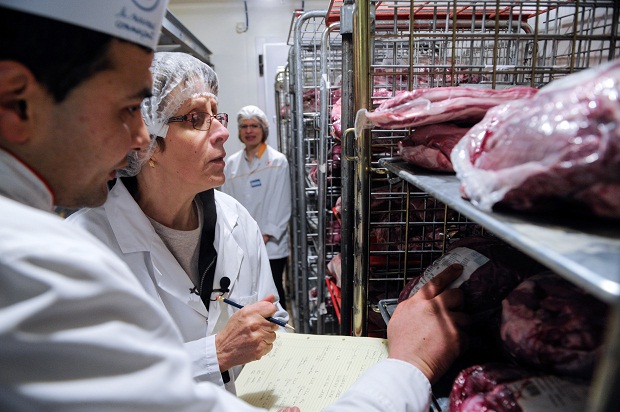Like many supermarkets, Tesco advertises a range of promotions and discounts. Now an investigation by the BBC has found that the retail giant has been short-changing customers with expired deals.
The BBC found that Tesco continues to advertise promotions on its shelves long after they have finished. In 33 of 50 stores visited, reporters found that multi-buy promotions were marked on the shelf, but the time-limited discounts were not applied at tills.
Energy Some good news for energy customers struggling with bills today. The Times reports that the UK’s big six energy suppliers are facing a threat to their dominance. Engie, a French conglomerate, has announced its arrival in Britain by undercutting their prices. According to The Times, ‘it has quietly started advertising a range of tariffs on price comparison websites before a formal launch expected in the spring. In an indication of its intent, Engie’s cheapest deal — a fixed-price tariff until June 2018 — is cheaper than any currently offered by the big six at £932 a year, according to analysis by Moneysupermarket.’ Pensioners Average pensioner incomes now outstrip those of working-age people, the BBC reports. That’s according to the Resolution Foundation which says that pensioners are also now more likely than their predecessors to still be in work, own a home and have access to generous private pensions. Employment The Guardian reports that ‘UK employers are increasingly struggling to fill jobs in shops, factories and hospitals according to a new report that suggests the shortfall may be down to fewer EU migrants seeking work in the UK in the wake of the Brexit vote’. The most recent Labour Market Outlook from the Chartered Institute of Personnel and Development and The Adecco Group, which polls more than 1,000 employers, has found that company bosses are experiencing labour and skills shortages throughout the food supply chain as well as in sectors such as manufacturing, healthcare and hospitality Meanwhile, The Telegraph says this morning that Britons may have to work longer if immigration is cut in the wake of Brexit. John Cridland, a former CBI director and the Government’s pension adviser, is reviewing the state pension age for Ministers. He said the ‘Brexit Factor’ had made the future of the state pension uncertain. CreditMillions of people risk being turned down for mortgages, credit cards or other financial products because they’re unknowingly financially ‘linked’ to ex-partners with poor financial histories, according to new research from credit checking service ClearScore.
Once you’ve taken out a joint financial product with someone, a connection is created that remains on both of your credit reports for six years, even after the account is closed or you separate from that person.
When applying for credit products, banks and lenders can look at any financial connections you have. That means the 11.7 million Brits who have taken out a joint product in the past could be refused credit if their ex-partner has a less than perfect financial history.
Business rates Philip Hammond has been warned that Britain’s high streets face losing some of their most popular pubs and restaurants because of huge increases in business rates. The Times reports that firms, including the owners of Pizza Express, Greene King pubs, Wagamama, All Bar One and Slug & Lettuce, have written to the Chancellor to ask him to rethink a plan under which some outlets will be hit with a 42 per cent increase in their rates this year. The Co-op Bank The Co-operative Bank has put itself up for sale, The Guardian reports, four years after it nearly collapsed and had to be bailed out by US hedge funds. ‘Amid persistent speculation over its long-term future, the bank said its board had decided to look for buyers, and also at other ways of bolstering its financial position.’ HomesThousands of homeowners could unknowingly be living in a high flood risk area, significantly increasing their chances of unexpected and costly damage, new analysis from home insurer Policy Expert has revealed.
Of the 5,443 people surveyed, almost half did not know whether they lived in a flood risk area. This is despite the fact that an overwhelming majority (95 per cent) stated they wouldn’t even consider buying a home if they knew it was on a floodplain. Furthermore, one in five of those surveyed stated they would consider emigrating if they knew the weather was going to continue to get worse in the UK in the future.
Despite people’s concerns, nearly one in five admitted they wouldn’t know what steps to take to protect their home if they knew it was going to be flooded, further increasing the potential scale of damage.






Comments